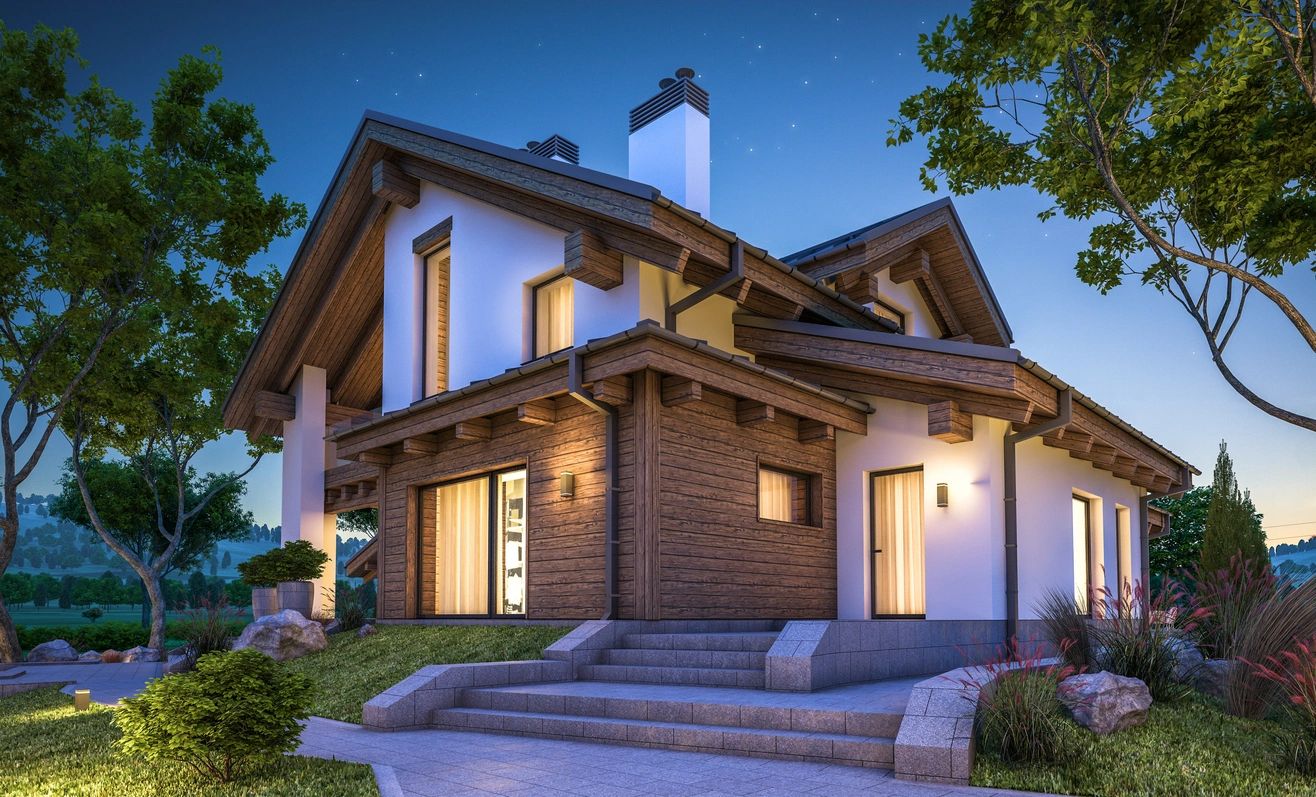Why Fall Maintenance Matters for Triad Homeowners
Cool mornings and bright afternoons make fall in the Piedmont Triad—Greensboro, High Point, Winston-Salem, Kernersville, Jamestown, Oak Ridge, Summerfield, and Burlington—the perfect season to prepare your home for winter. A few proactive weekend projects can prevent the most common—and most expensive—home insurance claims.
Across the U.S., wind/hail and water damage (including freezing) are the two biggest drivers of homeowners’ losses. Between 2018 and 2022, wind and hail caused about 40% of all claims, while water and freezing damage accounted for 28%. The average payout for a water/freezing claim was nearly $14,000, and roughly 1 in 60 insured homes file a water-related claim annually.
Here in the Triad, Guilford County Emergency Management notes that we face risks from winter storms, tornadoes, flooding, and remnants of tropical systems. This makes preventive fall maintenance especially important for homeowners in neighborhoods near creeks and low-lying areas like parts of Greensboro’s South Buffalo Creek.
1) Keep Water Out: Roof, Gutters, and Drainage
- Clean gutters and downspouts. Clogged gutters overflow into soffits and walls, causing leaks, rot, and stains. Debris also traps snowmelt during winter weather, leading to ice dams. (National Weather Service)
- Inspect your roof. From the ground or safely on a ladder, look for missing shingles, flashing gaps, or nail pops. Greensboro roofers often see storm-damaged shingles after summer thunderstorms—address them before freezing weather hits.
- Grade soil away from your foundation. Extend downspouts 4–6 feet to move water away. Test sump pumps, especially in flood-prone Triad neighborhoods like Oak Ridge, and those near Reedy Fork Creek, and consider a battery backup for outages.
- Flood insurance reminder. Standard home insurance excludes flood. Even one inch of water can cause $25,000+ in damage, and average NFIP flood claims between 2016–2021 were $68,000. NFIP policies have a 30-day waiting period, so don’t delay if your home is in a risk zone. (FloodSmart.gov)
2) Prevent Frozen Pipe Bursts
- Shut off and drain outdoor faucets. Add insulated foam covers to hose bibs. (IBHS)
- Insulate exposed pipes. Focus on garages, crawl spaces, and attics—common in older Greensboro homes.
- Seal air leaks. Check where pipes pass through rim joists or basement walls.
- Circulate warm air. Open cabinet doors under sinks during freezes.
- Smart tech tip. Water leak detectors and auto-shutoff valves significantly reduce water loss claims. (AM Best News)
- Replace washing machine hoses. Old rubber hoses burst frequently; use braided stainless steel and replace every five years.
3) Service Heating Equipment, Chimneys, and Vents
- Furnace tune-up. Fall servicing ensures burners, heat exchangers, and venting are safe before the first Triad cold snap.
- Chimney inspection. Creosote buildup is a leading cause of heating fires. Hire a certified chimney sweep before your first fire. (U.S. EPA)
- Space heater safety. Space heaters cause 41% of fatal heating fires despite representing only 3% of heating equipment. Keep a 3-foot clearance, plug directly into wall outlets, and turn off when leaving the room. (U.S. Fire Administration)
4) Test Smoke and Carbon Monoxide Alarms
- Smoke alarms. Install in every bedroom, hallway, and level. Test monthly. Homes with working alarms cut fire-related death rates by 60%. (NFPA)
- CO alarms. Place near sleeping areas. In winter, CO poisoning risks rise from furnaces and generators. The Consumer Product Safety Commission (CPSC) tracks hundreds of CO-related deaths annually.
5) Prevent Dryer and Electrical Fires
- Dryer maintenance. Lint buildup is the #1 cause of dryer fires. Clean lint filters after every load and the vent duct annually. (U.S. Fire Administration)
- Electrical safety. Replace frayed cords, avoid daisy-chaining power strips, and test GFCIs. Never run space heaters on extension cords. In 2021, electrical fires caused over $1.2 billion in losses nationwide.
6) Seal the Envelope: Windows, Doors, and Exterior
- Weatherstrip and caulk. Sealing cracks saves energy and reduces condensation. (IBHS)
- Exterior maintenance. Re-caulk trim and repaint before winter rains. Trim trees away from roofs and power lines—fall storms can bring down weak limbs.
7) Create a Storm-Ready Kit for Triad Outages
- Flashlights and batteries (skip candles).
- Portable chargers for phones.
- Generator safety. Operate at least 20 feet from windows; never run indoors. Use CO alarms on all levels. The CPSC continues to report CO fatalities from generator misuse.
Document for Insurance Before Winter
- Home inventory. Take photos or a video walkthrough of every room. Only about 47% of homeowners maintain an inventory, yet it speeds claims significantly. (III)
- Save receipts and service records. Keep proof of roof work, furnace servicing, chimney sweeping, and alarm purchases.
- Before/after photos. Especially after roof, gutter, or drainage projects—critical for proving loss prevention steps.
Piedmont Triad Fall Maintenance Checklist
- Roof & Gutters: Clean debris, inspect shingles, extend downspouts.
- Foundation Drainage: Ensure positive grading, test sump pump, consider battery backup.
- Outdoor Plumbing: Drain faucets, cover hose bibs, winterize irrigation by late October.
- Pipes: Insulate exposed lines, replace old washer hoses.
- Heating: Schedule furnace service, sweep chimneys, check space heaters.
- Alarms: Test smoke/CO alarms, replace expired units.
- Dryer & Electrical: Clean vents, check cords and outlets.
- Flood Prep: Evaluate need for NFIP coverage; remember 30-day wait.
Why This Matters for Greensboro Homeowners
Preventive maintenance isn’t just about saving money—it’s about protecting families, property, and peace of mind.
- Fewer claims: Cleaning gutters, insulating pipes, and checking alarms reduces risk.
- Lower severity: Leak detectors and documentation reduce damage if a loss occurs.
- Better coverage decisions: Understanding local weather risks helps homeowners choose deductibles, add flood coverage, and confirm endorsements.
Final Word for Piedmont Triad Homeowners
Fall is the best window for Triad homeowners—before freezing temperatures arrive—to complete the maintenance that prevents water, fire, and storm-related claims.
Start with the roof and gutters, insulate your pipes, service your heating systems, and test every alarm. Then, review your insurance with a Greensboro-based advisor to ensure deductibles, endorsements, and flood coverage fit your home’s true risks.
A few hours this fall can save thousands of dollars—and weeks of disruption—this winter.
Resources
- Insurance Information Institute (III) – Homeowners Insurance Losses
- Guilford County Emergency Management – Hazard Preparedness
- National Flood Insurance Program (NFIP) – FloodSmart.gov
- National Weather Service – NC Fall & Winter Preparedness
- Insurance Institute for Business & Home Safety (IBHS) – Disaster Safety Tips
- National Fire Protection Association (NFPA) – Smoke Alarm Safety
- U.S. Fire Administration – Heating & Fire Safety
- U.S. Environmental Protection Agency (EPA) – Wood Smoke & Chimney Safety
- Consumer Product Safety Commission (CPSC) – Carbon Monoxide Dangers
Local Resources (Greensboro & NC)
- City of Greensboro – Stormwater Division (Floodplain Guidance & Permits)
- North Carolina Department of Insurance – Homeowners Insurance Information
- NC Industrial Commission – Workers’ Compensation Requirements
- City of Greensboro – Emergency Preparedness
Learn more about Tom Needham Insurance Agency in Greensboro, NC.


